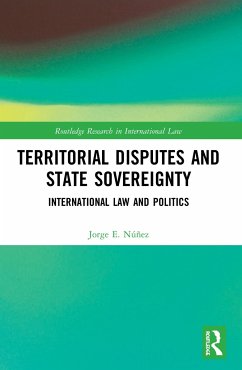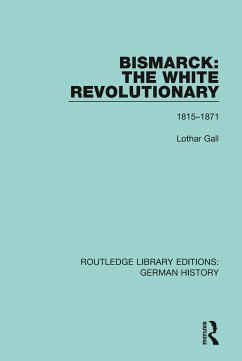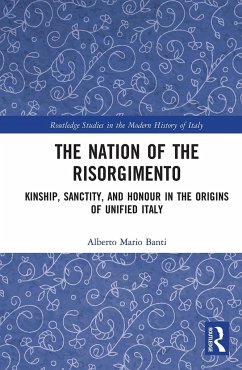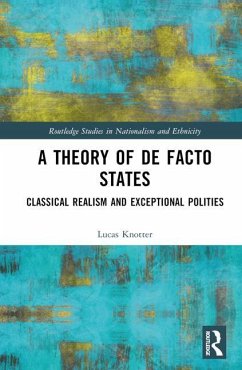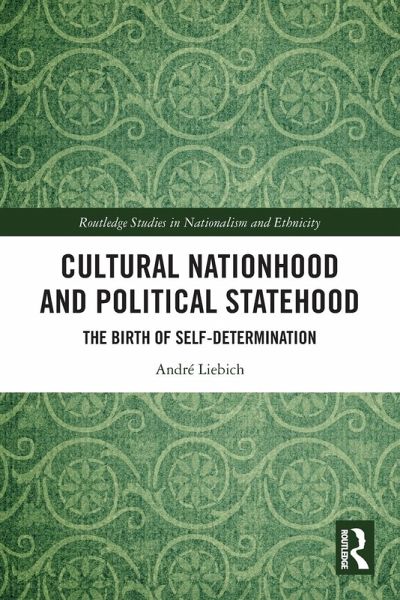
Cultural Nationhood and Political Statehood
The Birth of Self-Determination
Versandkostenfrei!
Versandfertig in 6-10 Tagen
45,99 €
inkl. MwSt.
Weitere Ausgaben:

PAYBACK Punkte
23 °P sammeln!
Cultural Nationhood and Political Statehood explores the development of the idea that every nation - most commonly understood as a linguistic community - is entitled to its own state.Following several contemporary studies of nationalism, this book provides a critical examination of the peculiarly modern concurrence of cultural nations and political states as it developed in the nineteenth and twentieth centuries. The author argues that this is one of the most fateful coincidences of modernity: so firmly engraved in today's consciousness that most scholars and policymakers assume the correlatio...
Cultural Nationhood and Political Statehood explores the development of the idea that every nation - most commonly understood as a linguistic community - is entitled to its own state.
Following several contemporary studies of nationalism, this book provides a critical examination of the peculiarly modern concurrence of cultural nations and political states as it developed in the nineteenth and twentieth centuries. The author argues that this is one of the most fateful coincidences of modernity: so firmly engraved in today's consciousness that most scholars and policymakers assume the correlation of cultural nationhood and political statehood to be intellectually unproblematic, yet the consequences have been overwhelming. The conflation of cultural nation and political state has imposed an isomorphism of language, culture, and politics upon the world. It has pre-determined democratic practice by enforcing the doctrine that the will of the people can only be the will of a people. It has led to the assumption that every nation may become a state. The book's originality lies in tracing the genesis and the elaboration over time of this curious contemporary assumption.
This thought-provoking book offers an unconventional perspective on the development of nationalism and world history. It will be relevant for upper-level students, scholars, and researchers of European history, nationalism, and self-determination.
Following several contemporary studies of nationalism, this book provides a critical examination of the peculiarly modern concurrence of cultural nations and political states as it developed in the nineteenth and twentieth centuries. The author argues that this is one of the most fateful coincidences of modernity: so firmly engraved in today's consciousness that most scholars and policymakers assume the correlation of cultural nationhood and political statehood to be intellectually unproblematic, yet the consequences have been overwhelming. The conflation of cultural nation and political state has imposed an isomorphism of language, culture, and politics upon the world. It has pre-determined democratic practice by enforcing the doctrine that the will of the people can only be the will of a people. It has led to the assumption that every nation may become a state. The book's originality lies in tracing the genesis and the elaboration over time of this curious contemporary assumption.
This thought-provoking book offers an unconventional perspective on the development of nationalism and world history. It will be relevant for upper-level students, scholars, and researchers of European history, nationalism, and self-determination.





